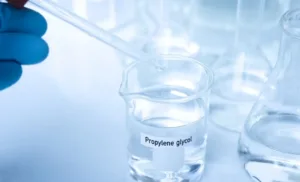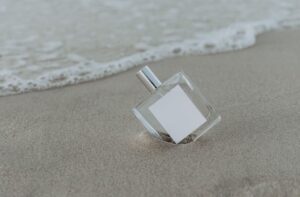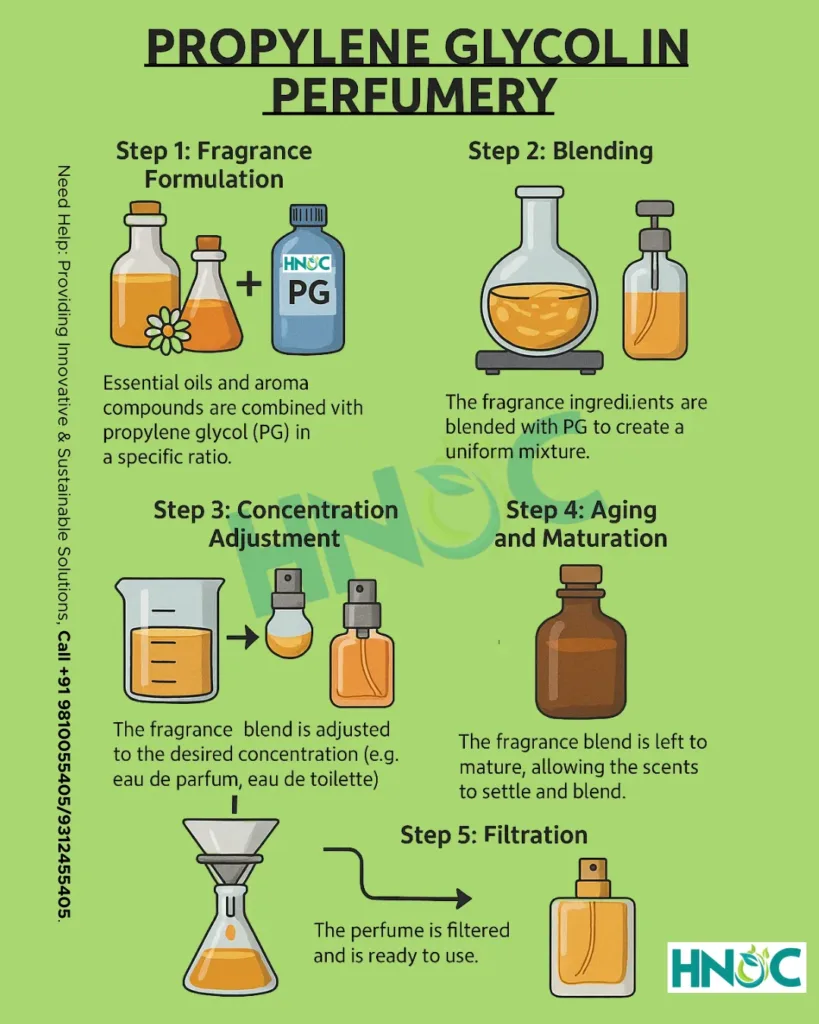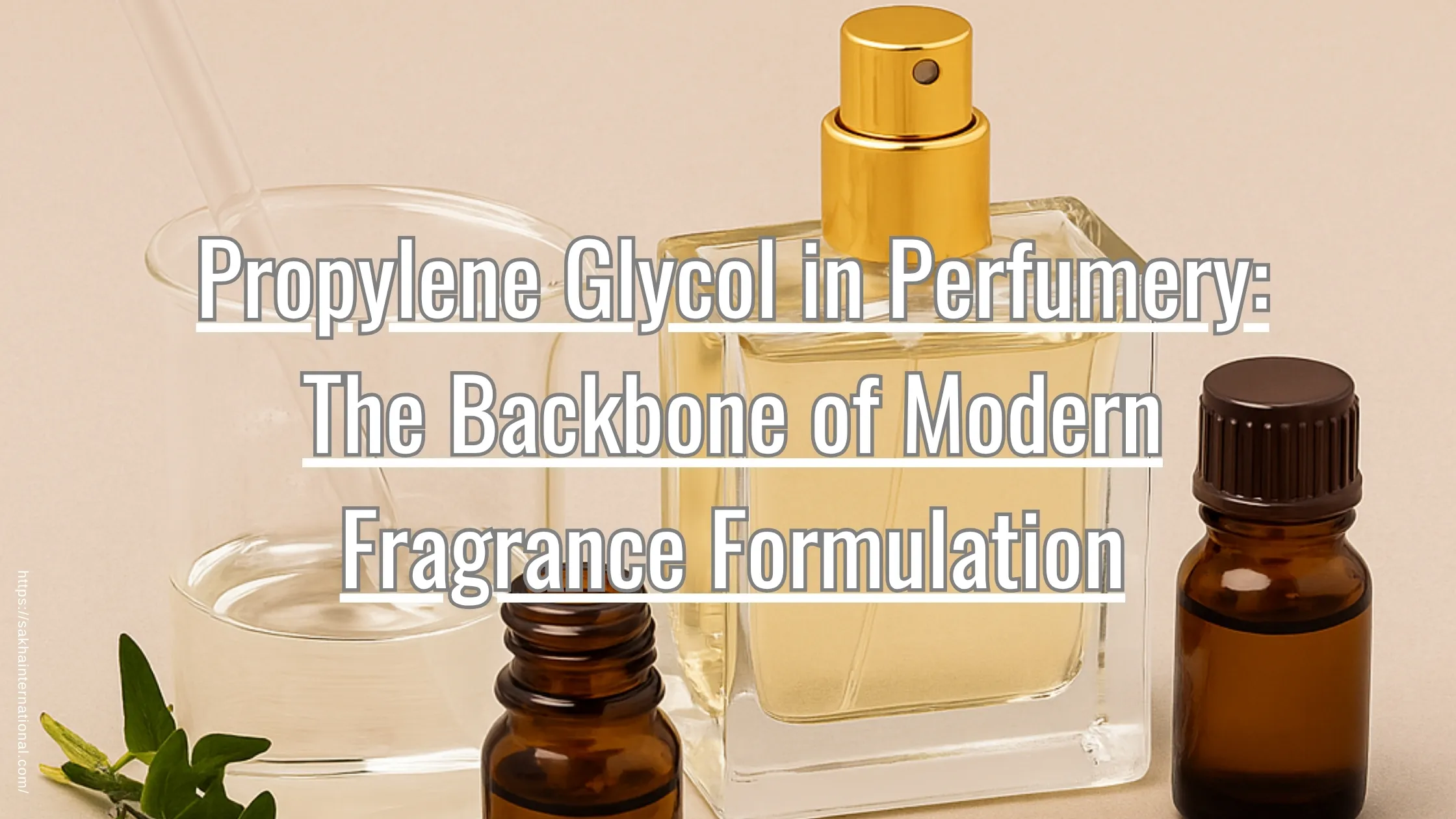Introduction to Propylene Glycol in Fragrance Manufacturing
Propylene glycol (PG) is a versatile, colorless, and odorless liquid widely used in the perfume and fragrance industry. As a carrier solvent, it plays a crucial role in ensuring the stability, longevity, and blendability of perfumes.
What is Propylene Glycol?

Propylene glycol is a synthetic organic compound with the chemical formula C₃H₈O₂. It is hygroscopic and miscible with water, alcohol, and many organic solvents—making it an ideal component in:
-
Fragrance formulations
-
Cosmetic emulsions
-
Skin-safe personal care products
Why Propylene Glycol is Used in Perfumery?

1. Solubilizer of Fragrance Oils
PG helps dissolve essential oils and aroma compounds, ensuring a uniform and stable blend.
2. Carrier and Diluent
It dilutes highly concentrated fragrance oils without altering their scent profiles, making them safe for skin application.
3. Moisture Retention and Skin Compatibility
Its humectant properties help retain moisture in personal care formulations like perfumes and deodorants.
4. Enhances Scent Dispersion
PG helps disperse the fragrance molecules evenly, improving fragrance projection and longevity.
Step-by-Step Process: How Propylene Glycol is Used in Perfumery

Here’s a simplified breakdown of the perfume formulation process using propylene glycol:
Step 1: Fragrance Formulation
Essential oils and aroma chemicals are combined with PG in a carefully calibrated ratio. This mixture serves as the foundation of the perfume.
Step 2: Blending
The ingredients are blended to form a homogeneous mixture, ensuring consistent quality and scent distribution.
Step 3: Concentration Adjustment
Depending on the final product—eau de parfum, eau de toilette, or cologne—the concentration is adjusted using PG and other solvents.
Step 4: Aging and Maturation
The blend is left to age, allowing the notes to settle, integrate, and mature, enhancing the scent’s depth.
Step 5: Filtration and Bottling
The matured blend is filtered to remove impurities, then bottled for commercial distribution.
Benefits of Propylene Glycol in Fragrance Applications
| Benefit | Description |
|---|---|
| Non-reactive & stable | Ensures fragrance longevity |
| Safe for skin contact | Approved by cosmetic safety standards |
| Compatible with various solvents | Works well with alcohol, water, and oils |
| Odorless | Doesn’t interfere with the actual fragrance |
| Enhances fragrance intensity | Improves projection and wear-time of perfumes |
Applications of Propylene Glycol in the Fragrance Industry
-
Luxury perfumes
-
Body sprays and deodorants
-
Air fresheners and diffusers
-
Scented lotions and body mists
-
Home and industrial aroma solutions
Conclusion
Propylene glycol is the unsung hero of modern perfumery. Its ability to blend, carry, and stabilize fragrances makes it essential for perfumers and manufacturers.






Leave A Comment